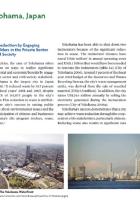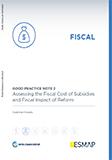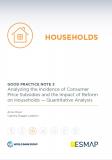Publications

For Eco2 cities, the case of Yokohama offers information on ways to realize significant environmental and economic benefits by engaging private sector and civil society stakeholders. Yokohama is the largest city in Japan. It reduced waste by 38.7 percent between fiscal years 2001 and 2007, despite the growth of 165,875 people in the city’s population. This reduction in waste is attributable to the city’s success in raising public awareness about environmental issues and the active participation of citizens and businesses in Yokohama’s 3Rs program (reduce, reuse, and recycle).
Yokohama has been able to shut down two incinerators because of the significant reduction in waste. The incinerator closures have saved US$6 million in annual operating costs and US$1.1 billion that would have been needed to renovate the incinerators. About 5 percent of the fiscal year 2008 budget of the Resources and Wastes Recycling Bureau, the city’s waste management entity, was derived from the sale of recycled material (US$23.5 million). In addition, the city raises US$24.6 million annually by selling the electricity generated during the incineration process.
Eco2 Cities: Ecological Cities as Economic Cities
RELATED:
Part three consists of the Field Reference Guide. The guide contains background literature designed to support cities in developing more in-depth insight and fluency with the issues at two levels. It provides a city-by-city and sector-by-sector lens on urban infrastructure. The next section comprises a series of sector notes, each of which explores sector-specific issues in urban development.
Suzuki, Hiroaki; Dastur, Arish; Moffatt, Sebastian; Yabuki, Nanae; Maruyama, Hinako. 2010. "The Field Reference Guide, Case 4: Yokohama, Japan." In Eco2 Cities: Ecological Cities as Economic Cities. World Bank. © World Bank. https://openknowledge.worldbank.org/handle/10986/2453

